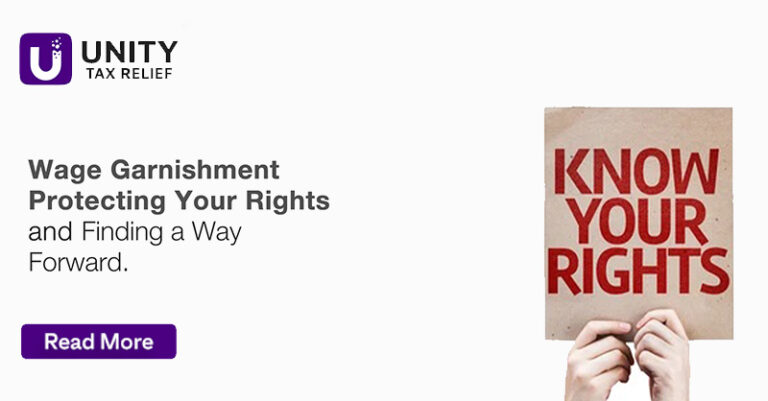Back taxes can be daunting when the Internal Revenue Service (IRS) gets involved. The mere thought of IRS tracking and monitoring a person’s financial records and tax returns can be challenging for anybody. But one should equally be aware of the rights and freedom one can opt for in such cases despite the pressure the IRS created on an individual.
The US government states these rights and responsibilities for the best interest of its people only, and it provides privacy and works in the interest of a taxpayer. In this blog, we shall talk about the IRS audits for back taxes and the options in which a person can protect their interests and privacy even under such challenging situations.
Types of IRS audits
- The simplest of all audits of the IRS is the Correspondence Audit, done by sending a mail or even a phone call and asking for clarification or documentation for particular things on a person’s tax returns.
- The second one is an Office Audit, in which the person needs to visit the nearest IRS office and meet with an auditor to clear the doubts regarding the tax returns. These audits are complex as the auditor may ask for additional documentation for proof.
- The last one is the Field Audit, the most challenging one for a person to handle. In such cases, an IRS agent or sometimes a team of agents can come and enter a person’s office or house and conduct in-depth research of financial records and tax filings. Such audits are incredibly high profile and generally happen in cases of suspected tax fraud.
Trigger point for IRS audits of Back taxes
Several reasons can trigger the IRS to check for back taxes, and an individual needs to understand the reason behind such triggers. Below mentioned are some pointers for the same:
- The first and foremost triggering point is mistakes or errors while filing tax returns. If a person takes deductions that are not allowed, underreports their income, or does not report tax files correctly, there is a higher chance for the IRS to get suspicious and audit the person’s files.
- If a person suddenly has a massive spike in their income, which is abnormal than the national average income of people with the same job or business, then the IRS can get suspicious. If a person has low pay for many years and suddenly receives a hike beyond any calculations, then the IRS should audit such files.
- Self-employed individuals have a higher chance of facing audits from the IRS as there lies a possibility of underreporting their income and overreporting their deductions.
- Businesses that take a considerable amount of money instead of expenses such as travel, meals, and entertainment also have a chance of getting noticed by the IRS, as such deductions can often get misused or overreported.
- The last case can be out of luck, as the IRS sometimes selects files to audit them. This is done to ensure that all the taxpayers throughout the nation are maintaining all the tax laws and rules.
Rights during an IRS audits
Knowing your rights when confronting an IRS audit is essential, as knowing them offers assistance and security and guarantees fair decisions for both parties. A few of the rights amid an IRS audit are mentioned in the following pointers:
- A person has the right to have a tax professional, a lawyer, and even a certified public accountant or a representative speak on their behalf during the review. A qualified representative can assist in exploring the process and guarantee that the rights are maintained.
- The IRS must regard your security and keep privacy throughout the review process. They shall only discuss the tax-related things with the person in charge or an authorized representative.
- If a person opposes the results of the auditor’s discoveries, a person has the right to appeal against the decision in the IRS Office of Appeals. This allows an unbiased audit of the case.
- A person has the right to know or understand why the IRS conducts the audit, the issues they are analyzing, and the required documentation.
How to deal with audit outcomes?
As soon as the IRS completes the audit, they will give the person with their discoveries and proposed alterations, in case any. Although a person has fewer alternatives in such cases, below are some pointers to deal with audit outcomes.
- If a person agrees with the IRS’s discoveries, the person has to sign the review report and clear any extra charges, interest, or punishments owed. Removing such debts at the earliest to avoid future penalties is necessary.
- If a person opposes the IRS’s discoveries, they can ask for a meeting with the auditor and their supervisor to discuss the concerns. A person can also appeal if convinced that the IRS has made a mistake. An appeal permits a fair-minded survey of the case by the IRS Office of Appeals.
- In a few cases, arranging for a settlement with the IRS may be possible. This can result in agreeing to pay a decreased sum or entering into an installment agreement to deliver within a specific time frame.
- If a person still does not get results according to his wishes after going through all the administrative options, a person can make things legal and file a case in federal court.
Final Overview
Confronting IRS audits for back charges can be overwhelming, but understanding the method and a person’s rights and obligations is vital. Maintaining accurate records, seeking help from tax professionals, and keeping things transparent can help to overcome such audits. Keeping a correct approach and knowing a person’s rights can help anybody protect their interests and overcome any tax issues, if any.






